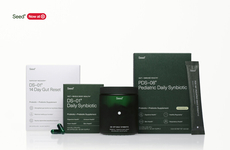
This Company Increasing Crop Yields with Probiotics for Plants
Katherine Pendrill — February 18, 2016 — Eco
References: indigoag & fastcoexist
An agricultural startup called 'Indigo' is helping farmers increase their yields by producing probiotics for plants. The scientific breakthrough is particularly timely as yield gains in the US have slowed to just 1 percent per year.
Indigo is a Cambridge-based startup that is producing probiotics for plants. This involves dosing seeds in healthy microbes before they are placed in the ground. These microbes allow the plants to grow with less water, in hotter environments and in saltier soil. As a result, these plants can stand up to some of the types of stress that come from climate change. In turn, farmers using the technology can increase their yields by as much as 10 percent.
As farmers continue to struggle with feeding a growing population, this technology could help significantly increase crop production.
Indigo is a Cambridge-based startup that is producing probiotics for plants. This involves dosing seeds in healthy microbes before they are placed in the ground. These microbes allow the plants to grow with less water, in hotter environments and in saltier soil. As a result, these plants can stand up to some of the types of stress that come from climate change. In turn, farmers using the technology can increase their yields by as much as 10 percent.
As farmers continue to struggle with feeding a growing population, this technology could help significantly increase crop production.
Trend Themes
1. Microbial Agriculture - The science of using probiotics to enhance plant growth and increase crop yields is disrupting traditional agricultural practices.
2. Climate-resilient Farming - The use of probiotics enables plants to withstand environmental stressors, such as hotter temperatures and saltier soil, offering innovative solutions to climate change impact on agriculture.
3. Sustainable Crop Production - By optimizing plant growth with probiotics, this technology supports sustainable farming practices, helping farmers meet the demands of a growing population while minimizing resource usage.
Industry Implications
1. Agriculture - The adoption of plant-specific probiotics presents disruptive opportunities in the agricultural industry by revolutionizing crop production, improving yield rates, and mitigating environmental challenges.
2. Biotechnology - The development and production of plant probiotics open up new avenues for biotechnology companies to explore innovative solutions for sustainable agriculture and create cutting-edge products/services.
3. Food and Beverage - The integration of plant-specific probiotics into food and beverage production processes offers the potential for market differentiation, improved product quality, and enhanced nutritional value.
5.4
Score
Popularity
Activity
Freshness























